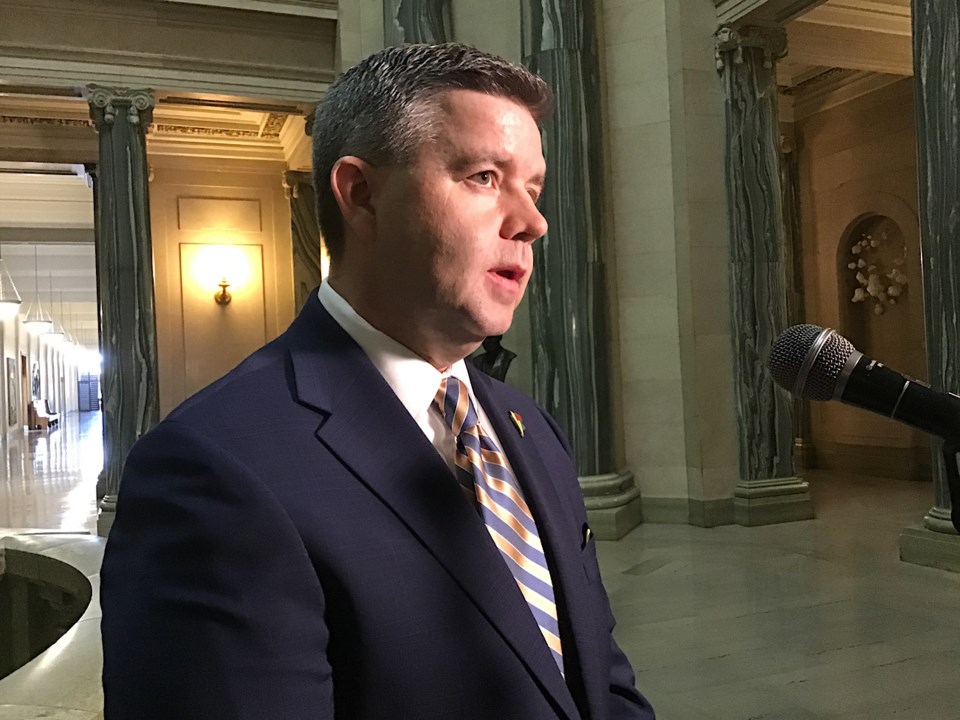REGINA - The Saskatchewan government has announced changes designed to remove red tape for internationally educated workers looking to get their credentials recognized in the province.
In the legislature on Wednesday, Immigration and Career Training Minister Jeremy Harrison announced the changes to The Employment Program Regulations.
“Really, what we have endeavoured to do is make Saskatchewan the most straightforward destination and province in the entire country to have a foreign-obtained credential recognized,” said Harrison to reporters after his announcement in the Assembly.
He explained how the regulation changes would work. Harrison told reporters the province will put in place legally binding timelines with all of the professional regulators in the province that if there is an application submitted to the regulator, “they will have 50 days to give an answer if that credential is obtained from outside of Canada.”
If the credential is obtained within Canada, they have 20 days to give an answer. If the regulator determined that the license won’t be issued, “they have to give a detailed reason by law as to the reason why the credential was not recognized, and also provide a detailed path to have the credentials remediated,” said Harrison. That could involve such things as taking a micro-course from Sask Polytechnic or courses from the University of Regina or Saskatchewan.
The other change is to bring in an International Credential Recognition Grant to assist newcomers who face foreign qualification recognition costs required to obtain their licensing.
This program is particularly being targeted for health care workers, with the province providing up to $6,000 per application for internationally trained health care workers to have their credentials upgraded so their license will be granted.
In addition to that, Harrison said they are going to work with the applicants directly if their application wasn’t successful, through an office called the Labour Mobility and Fair Registration Practices Office that will directly work with newcomers to have their credential recognized. That new office was funded in the budget.
The reason behind the move is to address shortages in the labour market and particularly in the health care field, due to immigrants with internationally recognized credentials not being able to get their qualifications recognized in Canada so they can accept jobs.
“We really do continue to have too many people with internationally obtained credentials that are not recognized. And it happens, and we need to do a better job and I think nationally as a country we need to do a better job, but in Saskatchewan we are leading the country. We are the only jurisdiction to have legislative timelines in place for international and domestic adjudication of these applications, and the only jurisdiction to have financial support and the remediation path being a part of it, and the office to work with the newcomers.”
It’s also to address the stories that have frequently come up of highly-educated immigrants to Canada coming in with foreign credentials in engineering, nursing or other fields who are unable to use those credentials in Canada because of, as Harrison put it, challenges in navigating the regulatory process.
“I think we’ve all heard it, and it does happen. You hear of the physician who’s driving a taxi,” said Harrison.
With the changes, there is a path to remediation for those individuals to be able to get those credentials recognized, something Harrison said he was “excited and positive about.”
The regulation change will be across the board impacting over 160 regulatory bodies. Harrison said his ministry officials had been working directly with regulatory bodies for the last year so they could meet the new requirements.
“I would say that we’ve had just a very, very good working relationship with regulators in getting there. I think there was an understanding that on their part as well they needed to do a better job with this, and maybe be a bit more transparent on how this works, especially for those who are unfamiliar on how the system works in Canada who have come from outside of the country, in how we can get to a ‘yes.’ Really, that’s what we want to get to. It’s not about changing standards, it’s not about lowering standards, it’s about having procedural certainty and clarity for those who are seeking to enter into those professions.”
In speaking to reporters, Opposition critic Trent Wotherspoon welcomed the changes, saying they will need to look at a few more of the details, but said some of the measures look like positive steps. He said the changes are something they had called for for a long time.
“We’re glad to see it being responded to. It’s been a real lost opportunity in Saskatchewan to not act in an aggressive way on this front,” said Wotherspoon.
“It doesn’t just shortchange the opportunity in the future of the newcomers that have come to Saskatchewan ready to contribute and build the province, but it has shortchanged the province as a whole. So it’s very important that we have an effective recognition that’s expedient for foreign credentials. And it’s about fairness and about ensuring that those that are immigrating to Saskatchewan can live out a very full life and in so doing contributing and building and shaping the future of Saskatchewan in some areas that are in such desperate need as well, when you think of the leadership that’s needed in healthcare.”






